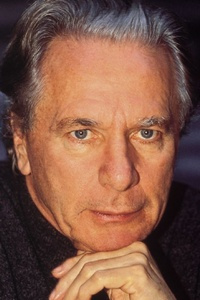Maurice Jarre | |
|---|---|
 | |
| Background information | |
| Born | 13 September 1924 Lyon, France |
| Died | 28 March 2009 (aged 84) Los Angeles, California, U.S. |
| Occupation(s) | Composer, conductor |
| Years active | 1958–2001 |
Maurice-Alexis Jarre (French pronunciation: [mɔʁis alɛksi ʒaʁ]; 13 September 1924 – 28 March 2009)[1][2][3] was a French composer and conductor. Jarre is best known for his film scores, particularly for his collaborations with film director David Lean composing all of his films from 1962 to 1984. Jarre received numerous accolades including three Academy Awards, three BAFTA Awards, four Golden Globes, and a Grammy Award.
Jarre won three Academy Awards for Best Original Score for the David Lean films Lawrence of Arabia (1962), Doctor Zhivago (1965), and A Passage to India (1984). He was Oscar-nominated for Sundays and Cybèle (1962), The Message (1976), Witness (1985), Gorillas in the Mist (1988), and Ghost (1990). Notable scores also include Eyes Without a Face (1959), The Longest Day (1962), The Train (1964), The Collector (1965), Grand Prix (1966), The Man Who Would Be King (1975), The Year of Living Dangerously (1982), Fatal Attraction (1987), and Dead Poets Society (1989). He worked with such directors as Alfred Hitchcock, Elia Kazan, John Huston, Luchino Visconti, John Frankenheimer, and Peter Weir.
Three of his compositions spent a total of 42 weeks on the UK singles chart; the biggest hit was "Somewhere My Love" (to his tune "Lara's Theme", with lyrics by Paul Francis Webster) performed by the Mike Sammes Singers, which reached Number 14 in 1966 and spent 38 weeks on the chart. He was the father of musician Jean-Michel Jarre and the adoptive father of screenwriter Kevin Jarre.
- ^ McLellan, Dennis (31 March 2009). "Maurice Jarre dies at 84; composer for 'Lawrence of Arabia'". Los Angeles Times. Retrieved 31 March 2009.
- ^ Weber, Bruce (31 March 2009). "Maurice Jarre, Hollywood Composer, Dies at 84". The New York Times. Retrieved 31 March 2009.
- ^ allmusic Biography